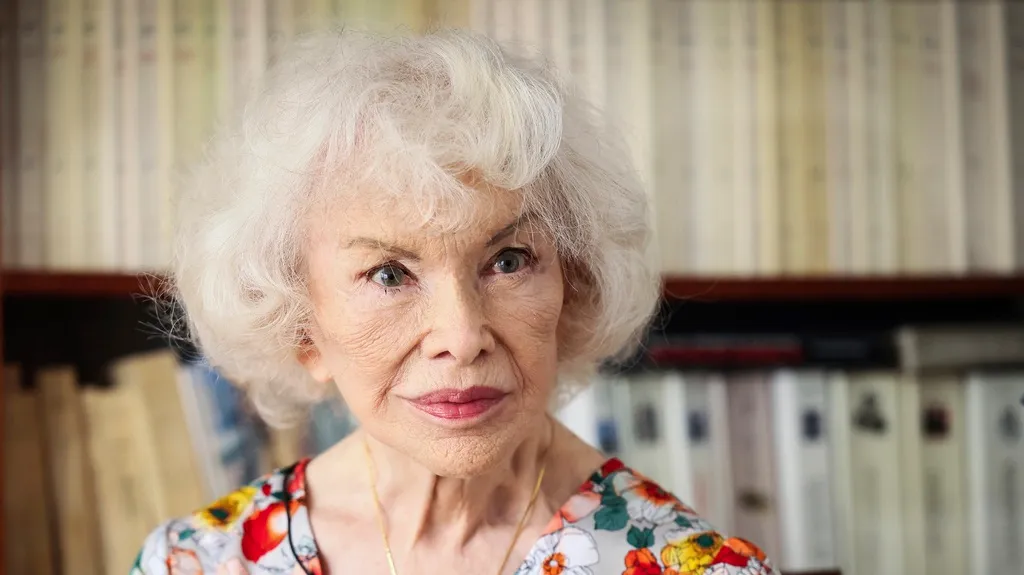October 29, 2012
On Minn. Gay Marriage Vote, Seniors a Tough Crowd
Jason St. Amand READ TIME: 4 MIN.
SHOREVIEW, Minn. - The word "homosexual" was rarely uttered in public when Louise Pardee was growing up, but now the 81-year-old is dialing up fellow Minnesota senior citizens trying to convince them gay relationships are nothing to fear.
"Often I find myself saying, 'I know this isn't an easy thing to talk about,'" Pardee said, between calls at a phone bank in suburban St. Paul set up to fight a proposed constitutional ban on gay marriage.
Minnesota is one of four states with gay marriage on the November ballot, and gay rights supporters hope this is the year they finally get a win after defeats in 32 previous state votes on the definition of marriage. They are encouraged by national polls showing increasing acceptance of same-sex marriage by younger generations.
But the outcome may depend on winning over some senior citizens, who vote in high numbers and have been a key factor in the decisions in the other states, including socially liberal ones like California.
"We've always been able to count on people over 65 voting our way in higher numbers than any other age group," said Frank Schubert, the political strategist leading the campaigns against gay marriage in Minnesota, Maine, Maryland and Washington state. He expects the same this year. Recent polls have showed a tight race on Minnesota's gay marriage question.
Reaching seniors is a priority for campaigns on both sides of the issue, as they employ elaborate voter outreach operations to both motivate their natural supporters and reach demographic groups that might be persuadable. In Minnesota, people older than 65 represent 13 percent of the population, about average compared with other states, and reliably post the best voter turnout percentages of any age group.
Gay rights organizations have recruited dozens of senior volunteers and given them lists of names culled from voter registration lists. The callers are trained, including by going through role-playing exercises to help them talk to older voters about a concept that was largely unthinkable for most of their lives.
The conversations can be awkward, says Pardee, but not impossible.
"People think it sounds hard to convince seniors on this subject, because we grew up with the taboos. But we're a group that's more open to arguments about fairness and justice," said Pardee, a widow and grandmother who once worked in public relations.
Elderly voters cite religious concerns most often. The volunteers' script suggests this response: "I'm a person of faith. One of the values important to me is to treat people the way I would want to be treated. This amendment is hurtful to so many people, which is why I'm voting no. What do you think about that?"
These volunteers are also encouraged to improvise. They bring up their children and grandchildren, gay people they've known, how their own faith informs their support for gay couples.
Minnesotans United for All Families, the lead group fighting the amendment, has also mounted phone banks micro-targeting other demographic slices: blacks calling blacks, Hispanics calling Hispanics and so forth. Campaign spokeswoman Kate Brickman said the group has reached at least 500,000 people through phone banks and other outreach efforts.
Minnesota for Marriage, the chief group seeking to ban gay marriage, is not tailoring its phone bank efforts to deliver a specialized message to specific demographic groups. The state campaign, said Schubert, emphasizes the idea that making gay marriage socially acceptable would make it easier for young people to embrace a gay lifestyle.
The group, which is receiving substantial funding from Catholic organizations, is using alliances with thousands of churches and religious groups to help them reach seniors, in addition to other churchgoers. Seniors attend church in higher numbers than younger age groups.
"The beauty of our campaign is it's a universal message, that children need a mother and a father and that they best thrive in a home where both those parents are there and loving them," said Winnie Okafor, outreach coordinator for Minnesota for Marriage.
Several visitors to a seniors activity center in downtown Minneapolis said they can't reconcile gay marriage with their religious views.
"I believe in one man and one woman," said Art Posingies, 82. "I'm a Christian, I go to church. If it's in the Bible, I believe it and that settles it."
Don Leners, an 80-year-old retired marketing executive, said he's uncomfortable with letting gay couples join the institution of marriage.
"If they took out the word 'marriage,' I'd be fine with it," Leners said. "Call it civil unions, whatever, that's just fine. I have no direct bias against them."
Joe Nyquist, an 83-year-old retired doctor who is making calls for the pro-gay marriage group, said he's encountered many older men who don't want to talk about gay people at all. When he senses high discomfort, Nyquist shifts the conversation to the question of amending the state constitution.
"We already have a law that prevents them from getting married," Nyquist told an older male senior during one call. "I don't like to put something like that in the constitution, which is usually used to protect people."
Nyquist said he was motivated to volunteer by his own gay son, a 58-year-old who's been with his partner for 18 years. He shares that story with seniors he has called.
"'What do they do in bed?' one man asked me," Nyquist recounted. "I said I don't know, I've never been there but I imagine it's not that different than what I do with my wife. I got into a little bit of an argument with him. We're not supposed to do that."


